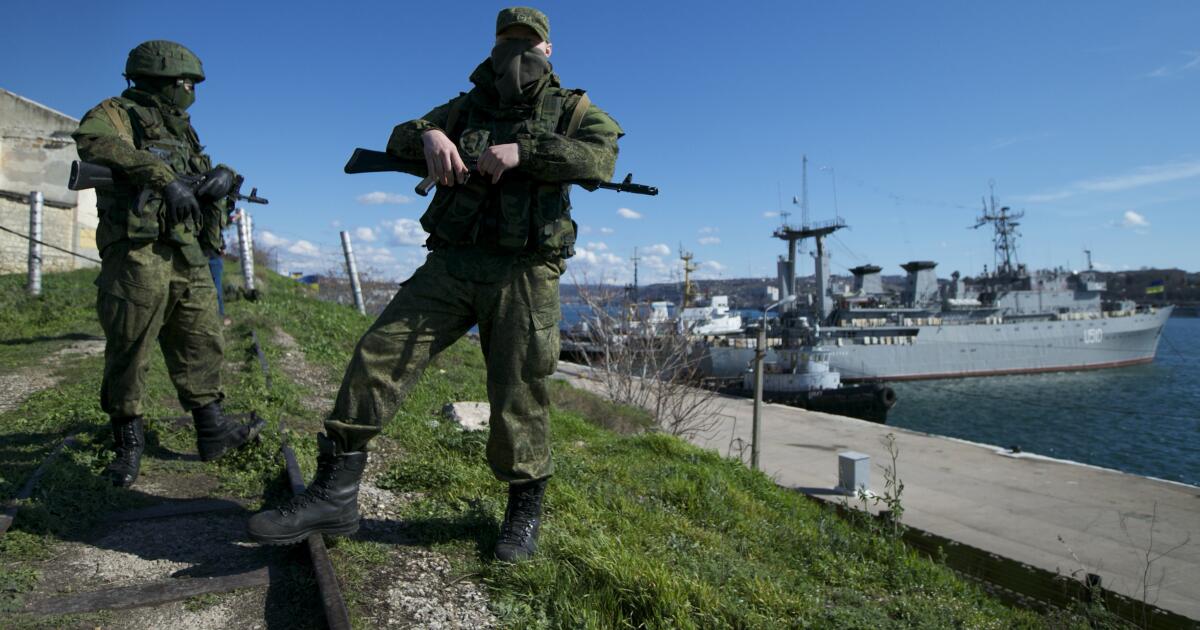Top European court says Russia breached rights in Crimea after takeover

Europe’s top human rights court ruled Tuesday that Russia was responsible for a string of human rights violations in Crimea since overrunning and later illegally annexing the Black Sea peninsula in 2014.
The European Court of Human Rights said in a lengthy written judgment that Moscow was responsible rights violations including reining in freedom of expression, freedom of religion and freedom of assembly.
Russia also breached international humanitarian law by imposing its laws on the occupied peninsula, the Strasbourg-based court ruled.
The court said there was “a pattern of retaliatory prosecution and misuse of criminal law and a general crackdown on political opposition to Russian policies in Crimea, which had been developed and publicly promoted by prominent representatives of the Russian authorities.”
The court is the legal arm of the Council of Europe, the continent’s foremost human rights body, which expelled Russia from its ranks more than two years ago following Russia’s full-scale invasion of Ukraine. The expulsion means that the court has no enforcement powers over Russia.
However, the ruling could bolster cases filed by individuals seeking reparations.
Moscow maintains that it rightfully took over Crimea after an overwhelming majority of local residents voted to secede from Ukraine and join Russia in a referendum. It has continuously rejected accusations of human rights violations in the region.
Ukraine and most Western governments, including the U.S., the U.K., France and Germany, condemned the annexation of Crimea as illegal, calling the referendum a sham.
In its written ruling, the court ruled that Russia was responsible for breaches including enforced disappearances and the abuse of Ukrainian soldiers, ethnic Ukrainians, Crimean Tatars and journalists.
It also held Moscow responsible for discrimination including the harassment and intimidation of religious leaders, cracking down on non-Russian media and banning public gatherings and expressions of support for Ukraine as well as suppressing the Ukrainian language in schools.
The decision Tuesday by the Strasbourg-based rights court comes six months after the top United Nations court ruled that Moscow breached an international treaty on eradicating racial discrimination by limiting school education in the Ukrainian language and by maintaining a ban on a Tatar representative assembly called the Mejlis.
Related
A New Book Argues That What Happens in Europe Doesn’t…
Remaking the World: European Distinctiveness and the Transformation of Politics, Culture, and the Economy by Jerrold Seigel “No issue in world
Poland plans military training for every adult male amid growing…
Poland’s prime minister, Donald Tusk, has said his government is working on a plan to prepare large-scale military training for every adult male in response t
2025 European Athletics Indoor Championships: Ditaji Kambundji secures women’s 60m…
Switzerland’s Ditaji Kambundji walked away from the 2025 European Athletics Indoor Championships in Apeldoorn on 7 March with much more than her first Europea
Takeaways from the EU’s landmark security summit after Trump said…
BRUSSELS (AP) — European Union leaders are trumpeting their endorsement of a plan to free up hundreds of billions of








